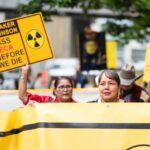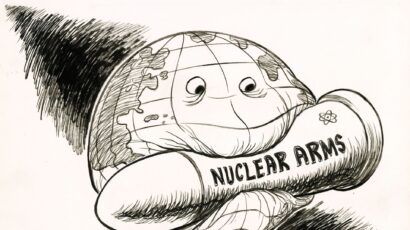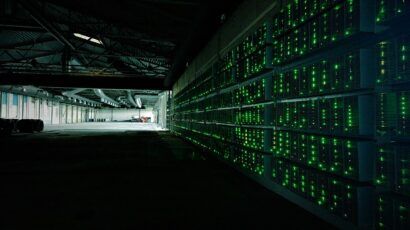The fate of nuclear power in Vietnam
By Viet Phuong Nguyen | December 5, 2016
For more than a decade there has been talk of a global “nuclear renaissance,” and until recently Vietnam looked to be part of it, making plans to build nuclear infrastructure and taking the necessary steps to become a member of the international nuclear community. Then, last month, after a year or more of troubling signs, the government officially suspended its nuclear development plans. Only time will tell if this proves to be the right decision. There are sound arguments on both sides of the debate. Yet those in favor of the government’s reversal should understand, at the very least, that pausing Vietnam’s nuclear development carries significant risks, not only for a successful restart in the future but also for business partnerships and nonproliferation efforts. While the government’s decision is unlikely to be reversed, its negative consequences should be mitigated as much as possible. If nothing else, Vietnam should ensure it does not lose the gains it has made in recent years, which is something the United States and others have an interest in helping with from afar even though the most important strides must be taken by the Vietnamese themselves.
Ups and downs. Vietnam’s decision to pause its nuclear development comes after years of successful prep work. In 2008, the country’s National Assembly passed the Atomic Energy Law, which served as the legal basis for Vietnam’s nuclear power development, and in 2009 it officially gave the green light to the government’s first slated nuclear project, two nuclear plants in the southern coastal province of Ninh Thuan. A year after that, the first batch of Vietnamese students headed for Russia to study at renowned institutions and build their nation’s nuclear workforce. Around the same time, hoping to build 10 nuclear power units by 2030, the government struck deals with Russian and Japanese firms for the Ninh Thuan project and busied itself, both at home and abroad, with other necessary groundwork. In 2014, the US Congress approved a bilateral “123 Agreement,” allowing Vietnam to do business with companies like Westinghouse and General Electric and easing the transfer of American-origin technology from Japan. Even in the wake of the Fukushima accident in March 2011, when other nuclear newcomers like Thailand renounced their plans, Vietnam’s leadership stood firm.
Yet after several years of progress, troubling signs began to emerge in late 2014, the year construction was supposed to begin on the first nuclear unit, when the government decided to extend the project’s prep period to take into account concerns over tsunami risks and an incomplete legislative framework for safety regulation. A year later, in November 2015, the National Assembly’s Committee on Science, Technology, and Environment reported that construction on the first unit of the Ninh Thuan project, the one slated to begin in 2014, would be delayed until 2022, with the operation date moved back from 2020 to 2028. Then, in December 2015, a popular media outlet published a long article discussing the disadvantages of nuclear energy. Alluding to disagreement among senior officials on the feasibility of the Ninh Thuan project, it proposed abandoning nuclear power altogether. The article’s author, Vu Ngoc Hoang, not only sat on the Central Committee of the Communist Party but served as second-in-command on its Central Propaganda Committee. Although he retired shortly after the publication of the article, it was hard not to see his assessment as a sign of an emerging consensus within the party.
The next year would prove those suspicions. In March the revised National Power Master Plan confirmed the construction delays first reported by the National Assembly, along with a noticeable drop in the role nuclear power was to play in Vietnam’s power generation by 2030, from 10.1 percent to 5.7 percent. The Vietnam Atomic Energy Institute cancelled the popular Vietnam Nuclear Expo, held every other year since 2008, for what it said were scheduling reasons. The status of nuclear development was omitted from Vietnam’s statement to the General Conference of the International Atomic Energy Agency. Officials and state-owned newspapers began to mention, apparently for the first time, the safety and environmental risks of Chinese nuclear power plants near Vietnam’s border. Then, on November 10, citing dwindling energy demand and nuclear power’s lack of price competitiveness, the government declared that Vietnam’s nuclear energy plans would be postponed indefinitely, a decision endorsed soon after by the national legislature.
Stopping is stepping backwards. One important thing to understand about the debate over Vietnam’s nuclear program is that while there are pros and cons that would exist regardless of whether the program had begun or not, the fact that the program has been in place for a half-decade or more means it has additional points in its favor. Proponents of the government’s decision can point to things like high upfront costs and increasing external debt, unresolved issues of spent fuel management and proper construction oversight, and the nation’s unexpected drop in energy demand due to a slowdown in economic development since 2008. On the other side, those in favor of nuclear power can argue that it relieves a troubled energy mix, in which hydropower, still responsible for almost half of installed capacity, has gradually lost its charm due to numerous deadly accidents, and the coal-fired plants that provide another third of electricity production have caused alarming pollution in two major cities, the capital of Hanoi and Ho Chi Minh City. These arguments would exist no matter how far along the program had gotten. Yet the progress that has been made means there are additional reasons to try to preserve its momentum.
Take the project to resettle people living in the vicinity of the future plants in Ninh Thuan Province, or the efforts to train qualified human resources for their operation. In 2015, the government announced a budget of $150 million for the relocation of two local communities, totaling 5,000 people, to new sites with fully developed infrastructure—a major improvement for these communities, whose lives mostly depend on coastal fishing and low-producing agriculture. There are also many Ninh Thuan natives among the 400 Vietnamese students who have been sent to Russia since 2010 to study at renowned nuclear institutes such as the National Research Nuclear University. The hope was that after graduation they would come back as nuclear engineers to form the core of Vietnam’s nuclear workforce. Major changes to the country’s nuclear energy plan will surely affect the career paths of these students, who are spending at least six years abroad learning a very specific set of knowledge and skills in a difficult foreign language, and thus create a brain-drain risk for Vietnam of a small but essential and costly workforce that it might turn out to need in the future.
Another issue that policy makers have to take into account is the public acceptance of nuclear energy. Years of consistent economic development in Vietnam have resulted in a growing middle class in the big cities, a middle class that has become more and more discontent with the way the government handles things like inflation, food safety, and especially environmental issues. Armed with the power of social networks (about one-third of the country’s 90 million people are active Facebook users), they have voiced their concern over issues ranging from Hanoi’s plan to cut down 6,700 urban trees, to the deteriorating air quality in big cities, and most recently a large-scale fish kill in the coastal region due to a chemical spill from a Taiwan-owned steel factory. Mass protests draw a mix of local residents, Catholic priests, environmental and human right activists, and lawyers—the same sort of crowd who participated in the anti-nuclear demonstrations that led to the shutdown of the Bataan nuclear power plant in the Philippines during the 1980s. Forcing authorities to respond to their demands, albeit slowly, the social and political power of this environmental movement will grow significantly in the future. So, the longer the delays, the stronger the opposition will be from this faction. This is an unfortunate situation given the relatively positive public opinion about nuclear energy at the moment, which has been meticulously cultivated at the national and local levels by the power company Vietnam Electricity and its partners in governmental agencies and international organizations.
With these additional factors in mind, it becomes clear that delays put in place by the government could actually create more problems than currently exist. A pause in Vietnam’s nuclear energy development, therefore, is not a harmless or neutral measure but one that might cause additional headaches if the program eventually resumes.
Wider consequences. While Vietnamese themselves stand to lose the most from their government’s decision to suspend nuclear development, there could be ripple effects outside the country as well, both for Hanoi’s business partners and for nuclear security in the region and around the world.
If the delay in Vietnam’s nuclear plans gets as lengthy as it looks to be, the firms working on the Ninh Thuan project will be the first to feel the impact. For Rosatom, the Russian vendor, it might be relatively insignificant. Not only has a contract not been signed, but the company, a major player in the industry and the most successful nuclear exporter in recent years, already has multiple confirmed and ongoing projects in China, India, Iran, Turkey, Belarus, and Finland. Given the US-led sanctions imposed on the Russian financial system, the cancellation of a project that Russia is supposed to fund a large part of might be considered a relief to the investment portfolio of the state-owned firm. And although the decision would be a disappointment to Moscow’s nuclear diplomacy, its negative effect on Russian-Vietnamese relations is likely to negligible, as Vietnam still largely depends on Russia for military technology and equipment, and Russia’s most important partnership in the region is still the one it has with China.
It could be a very different story, however, for Japan. Japanese nuclear companies have been stuck for years now in the post-Fukushima mire and desperately need to score foreign contracts to offset their domestic misfortunes. Constructing new nuclear power plants in Japan today is almost unthinkable due to public opposition, and Vietnam and Turkey are the only two countries that have agreed in principle to import nuclear technology from the island nation. With the cancellation of the Vietnamese nuclear program, the Sinop nuclear project that Japanese companies have co-developed with the troubled French group Areva in politically unstable Turkey is their last hope.
Finally there’s the issue of proliferation. When the United States struck its 123 Agreement with Vietnam two years ago, it did so without the so-called “gold standard” provision requiring Hanoi to renounce its right to develop enrichment and reprocessing technologies—something it did require of its 123 Agreements with the United Arab Emirates in 2009 and South Korea in 2015. While this is understandable in the context of the Obama administration’s warming relations with Vietnam, it nonetheless means Washington has opened the door for a potential proliferation risk—the introduction of a less restricted nuclear program in a country that has significantly increased its military expenses in recent years due to territorial disputes over islands in the South China Sea. A delay in those plans does not eliminate that potential and in fact risks undoing the nonproliferation progress Vietnam has already made.
From the perspective of international security, the biggest achievement of the nuclear power program of Vietnam is the fact that the country’s adherence to the nonproliferation and export control regimes has improved significantly in the past few years. Vietnam is now a member of all major treaties and conventions related to nuclear nonproliferation, safety, and security and has actively participated in related programs such as the fuel conversion of its research reactor from highly enriched to low-enriched uranium, which was completed in 2013 in collaboration with the United States and Russia. Without an active nuclear energy project, the government of Vietnam may lack the incentive to prioritize such activities, which is why it is critical to regional and global security for the United States, the International Atomic Energy Agency, and other international partners to continue engaging Vietnam in nuclear transparency and capacity-building efforts.
Don’t make it worse. Despite the pro-nuclear arguments, nuclear energy is still undeniably unattractive to Vietnam at this moment, especially in term of financing and energy planning. Moreover, the sooner the program is paused, the less costly it is for the state budget, which has been so far spent mostly to develop local infrastructure for the project. These are probably among the major reasons that came up during the delay discussion, which occurred among the Communist Party leadership behind closed doors. Even without the details of this discussion, however, it is important to note that the delay of such important subject (the Ninh Thuan nuclear power plant was designated as state-level strategic project) is not spontaneous, as it could only be decided collectively, at the highest level of the Central Committee. Therefore, rather than trying to reverse the decision, nuclear proponents should focus on preserving the institutional infrastructure and nuclear workforce that have been achieved since 2010 for a possible restart in the future.
It is important to not dissolve existing nuclear organizations; instead their activities and funding can be refocused to other applications of nuclear energy in industry or medicine in order to maintain the governance capability, nuclear knowledge, and international connections. Equally important is the task to keep the trained people that were intended for the nuclear project, either through employing them at thermal power plants, which have many similarities to nuclear plants, or giving them opportunities in nuclear-related areas like R&D or education. Lastly, it is essential for Vietnam Electricity and the government to continue their public communication efforts, without which the public acceptance of nuclear energy cannot be sustained in the future.
It’s still unclear if Vietnam will be part of the “nuclear renaissance” or not, and indeed as 2016 draws to a close, the Vietnamese contribution to that global rebirth is looking more like a stillbirth. However it is important to keep in mind that national energy programs, especially nuclear ones, are large and complex. They cannot simply be reversed overnight, nor should they be. With dedicated efforts and support from abroad, Vietnam’s nuclear achievements to date can at least be preserved in a safe and productive way, regardless of the fate of the country’s nuclear ambitions. And that is an effort that those on both sides of the debate should be able to get behind.
Together, we make the world safer.
The Bulletin elevates expert voices above the noise. But as an independent nonprofit organization, our operations depend on the support of readers like you. Help us continue to deliver quality journalism that holds leaders accountable. Your support of our work at any level is important. In return, we promise our coverage will be understandable, influential, vigilant, solution-oriented, and fair-minded. Together we can make a difference.
Topics: Analysis, Nuclear Energy















